Boycott Israel campaign: Companies complicit in Zionist entity’s Gaza genocide
By Ivan Kesic
Leader of the Islamic Revolution Ayatollah Seyyed Ali Khamenei, in a powerful speech on Wednesday, reiterated the call for the boycott of the Israeli regime amid the Gaza genocide.
Addressing the Muslim nations, Ayatollah Khamenei said the exports of oil and other commodities to the Israeli regime must be immediately halted while also calling for an end to bombings in Gaza.
Leader of the Islamic Revolution has been the most vocal advocate of the boycott against the regime, which can pave the ground for the annihilation of the illegitimate entity and liberation of Palestine.
Since October 7, the calls for the boycott of the regime, as well as the companies, products and brands that have directly or indirectly aided the occupying regime have grown louder worldwide.
It comes as the death toll in the Israeli bombing campaign in the besieged coastal strip continues to mount, reaching almost 9,000 now after four weeks, most of them children and women.
On Tuesday, a series of bombings targeting a refugee camp in northern Gaza left hundreds dead.
Economic vulnerabilities
The Israeli regime's economy is not self-sufficient and is heavily dependent on trade and imports, especially energy, as well as exports, which makes it vulnerable to foreign boycotts.
The ongoing war on Gaza has already caused damage to the Israeli economy as the population is forced to stay at home due to regular retaliatory rocket attacks, pushing normal life to a standstill.
In the past three weeks, the main natural gas field has been shut down, airlines have canceled most of their flights, farms have been destroyed for lack of workers, and the mobilization and evacuation of hundreds of thousands has upended many businesses in the occupied territories.
The technology industry, which was once the regime’s flagship industry contributing to its economic growth, began to falter even before the start of the new war on October 7 with foreign investment in tech companies nose-diving in the half last year compared to a record $27 billion the year before.
The financial situation is also dire as the Israeli regime’s fledgling currency, the shekel, has reached a 14-year low, and the benchmark stock index has plummeted approximately 10 percent this year.
Last year, 2.67 million foreign tourists visited the occupied territories and the income was $3.8 billion, as opposed to around $6.6 billion in 2019. Now observers are warning of the tourism collapse next year.
Michel Strawczynski, an economist and professor at the Hebrew University, said he expects a massive blow in the last quarter of 2023 with the likelihood of the economy shrinking by 15 percent.
A long and possibly multi-front war with the Palestinian resistance groups could make the economic downturn even worse, with a much longer time required for subsequent recovery.
The most vulnerable point of the Israeli regime’s foreign-dependent economy, according to most experts, is the organized boycott of its products, which account for tens of billions of dollars every year.
Major trade areas
According to the UN COMTRADE database on international trade for 2022, by far the largest importer country of Israeli products is the United States, with a value of $18.6 billion or a 29% share.
Other significant importers are China, India, United Kingdom, Ireland, Netherlands, Turkey, France, Belgium, Brazil, Germany, Switzerland, Italy, South Korea and Spain.
Combined, European countries with 36 percent imports represent an even bigger market than the US, most of which refers to EU countries. A large share is also made by Asia with 27 percent of imports.
Most of the value of these products is related to diamonds ($9.06 billion), integrated circuits ($5.09B), refined petroleum ($2.73B), medical instruments ($2.36B), and other measuring instruments ($2.32B).
The products are generally exported to private companies whose staff activists can inform about Israeli war crimes or organize pressure campaigns to cancel trade.
A more important exception to this is the export of military technology, valued from $831 million last year to $1.46 billion in the record year 2016, which is again prone to activism.
In August, the Press TV website published an investigation about how the Israeli authorities manipulate data on the effectiveness of their Iron Dome military systems with the aim of exporting and making multibillion-dollar profits from them.
The latest escalation by the regime in Gaza has confirmed the analysis and proved inefficiencies far greater than previously acknowledged. The situation is similar with the Merkava tanks and other weapons whose reputation Israel has manipulated in the same way.
Equally important are the pressures on the regime’s import of foreign weapons, which already included several successful campaigns, as well as on stopping Israel's import of crude oil, which it receives mainly from Azerbaijan, via Turkey.
The campaign with the hashtag #NoOilForIsrael has been trending on social media in recent weeks with tens of thousands of netizens calling for an end to oil exports to the regime.
Major companies to boycott
Campaigns have in recent weeks been vociferously calling for the boycott of Israeli and international companies and brands that are directly and indirectly complicit in violations of Palestinian rights.
The companies that should be boycotted, as a start, include Siemens, which has been found complicit in the Israeli regime’s project of settler-colonialism through its planned EuroAsia Interconnector.
Hewlett Packard is another company closely tied with the Tel Aviv regime and helps run the biometric system that Israel reportedly employs to monitor and restrict the movement of Palestinians.
The California-based company, according to confirmed reports, provides computer hardware to the Israeli military and maintains data servers belonging to the regime’s police force.
French insurance company AXA Divest is one of the largest investors in Israeli regime-run banks, which are used to finance the construction of illegal settlements and the theft of Palestinian resources.
Puma, the German multinational company that manufactures footwear, apparel and accessories, is the sponsor of the Israeli football federation which includes players and teams from occupied territories.
Starbucks, McDonald’s, and other such brands have also faced increased scrutiny in recent weeks.
Starbucks reportedly sued its workers union after they posted a message in solidarity with Palestinians, which enraged millions of consumers across the world.
The franchises of McDonald’s in the occupied territories announced free meals for Israeli military personnel following the regime’s indiscriminate bombing campaign in the Gaza Strip last month.
Burger King franchises in the occupied territories also faced calls for a boycott after it offered free food to the Israeli military members. The company even posted photos of it on Instagram.
Dominos, Pizza Hut, Subway, Nestle and PapaJohns also had similar offers for the Israeli soldiers, willfully ignoring their participation in the regime’s genocidal campaign in the besieged Gaza Strip.
Google has also been found biased in favor of the Israeli regime after its CEP Sundar Pichai issued a letter recently that expressed support for the regime and sparked calls for the company’s boycott.
Among those companies that have been put on the boycott list by various anti-apartheid campaigns is Ahava Cosmetics, a popular Israeli brand that has production sites in illegal Israeli settlements.
Nestlé, a popular Swiss multinational food and drink company, is believed to be owning 53.8 percent of shares in the leading Israeli food manufacturer Osem.
Keter, an Israeli manufacturer of sheds, raised garden beds, and deck boxes is another big name.
BDS boycott
Data on major export products and active Israeli companies in different countries that should be boycotted can be found on the BDS movement website.
Boycott, Divestment and Sanctions (BDS) is a pacifist pro-Palestinian movement that has been promoting boycotts, divestments, and economic sanctions against Israel for eighteen years.
The organization, with branches in many countries, regularly monitors, collects data and organizes activists for actions, aimed at ending international support for the regime’s oppression of Palestinians.
Among the companies the BDS movement has listed prominently for boycott is Hewlett Packard, an American company worth more than $25 billion complicit in the persecution of Palestinians.
In the past, companies such as Ben & Jerry’s (US) and Orange (France) have featured on the BDS list.
The UN, the World Bank and other experts say that BDS is having an important economic impact on Israel and that this could well grow as the movement develops.
Amid the fresh escalation in Gaza, BDS has published an urgent action alert in which it calls for the development of new effective campaigns and the expansion of cooperation with new interested parties.
In a tweet on Wednesday, the movement called for “urgent global mobilization to stop Gaza genocide.”
“If not now, when? Join or organize solidarity demos in your town or city. Let's continue to pressure governments, escalate all #BDS campaigns and pressure the @IntlCrimCourt,” It wrote.
Interestingly, a Pew survey found last year that some 84 percent of Americans knew little about this campaign. Today, millions of people are naming brands with ties to Israel and calling for a boycott.
The BDC movement takes inspiration from the South African anti-apartheid struggle and the US civil rights movement, both of which relied on boycotts to press their demands.
Potential of boycott
The potential for the expansion of boycott activism is tremendous, as evidenced by recent large-scale protests in countries considered key trade partners of Israel, as well as public opinion in those countries.
It shows that people are willing to participate in the anti-Israel boycott campaign, especially amid rising awareness about the regime’s genocide and ethnic cleansing in both Gaza and the occupied West Bank.
The importance of the boycott is also evidenced by public opinion in the occupied territories, where local Mitvim polls show that citizens consider the worldwide anti-Israeli boycott as the second most important foreign policy issue, right after the achievement of a stable peace in the regime’s favor.
For comparison, according to the same polls, the Iranian nuclear program is only in fifth place among international priorities, as seen by less than a fifth of respondents.
The fact that pro-Israeli lobby groups, such as the Anti-Defamation League (ADL), the American Jewish Committee (AJC), the American Israel Public Affairs Committee (AIPAC), the Zionist Organization of America (ZOA), have put anti-boycott on the top of their priority lists bears testimony to its significance.
The main anti-boycott methods of those Israeli lobbies are smear campaigns against BDS activists and attempts to push through anti-BDS laws in many Western countries, including the US, Canada, the UK, France and Germany.
For these reasons, experts believe it is necessary to warn activists about this lobbying phenomenon and instruct them to inform pro-Palestinian politicians and parties in their countries about such threats.
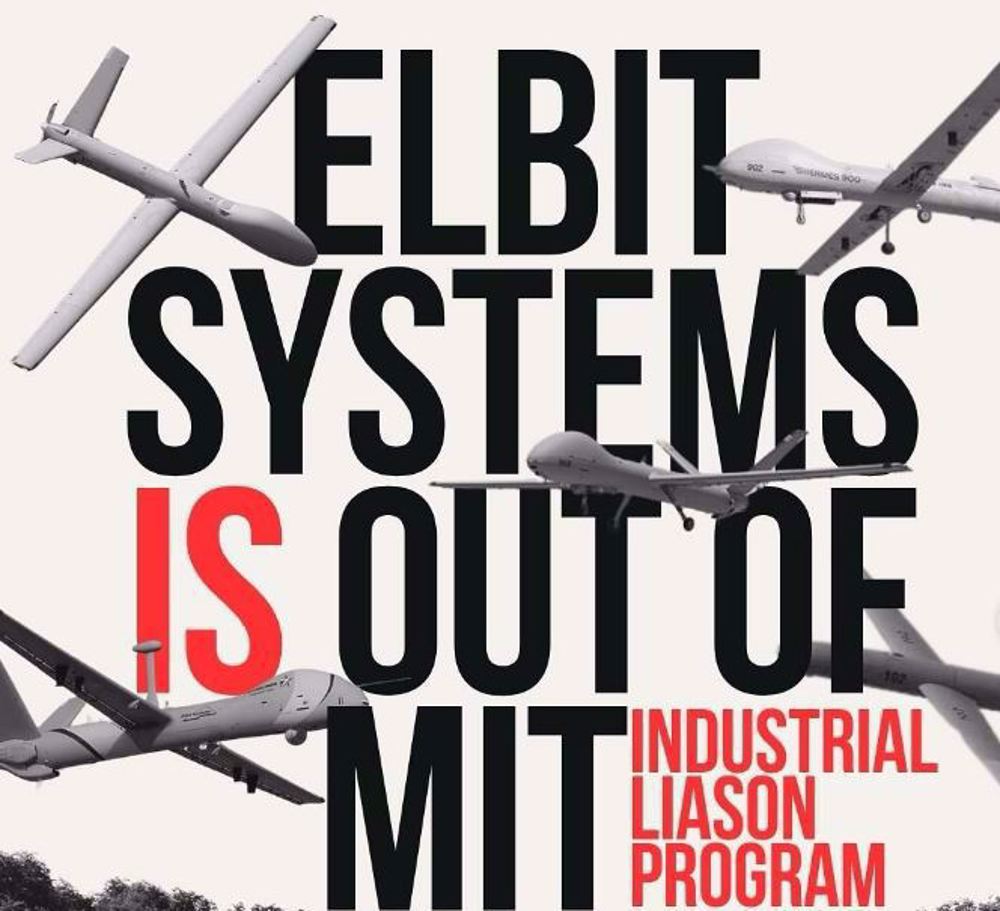
MIT forced to cut ties with Israeli weapons maker Elbit Systems

Israeli forces kill Palestinian teenager in occupied West Bank
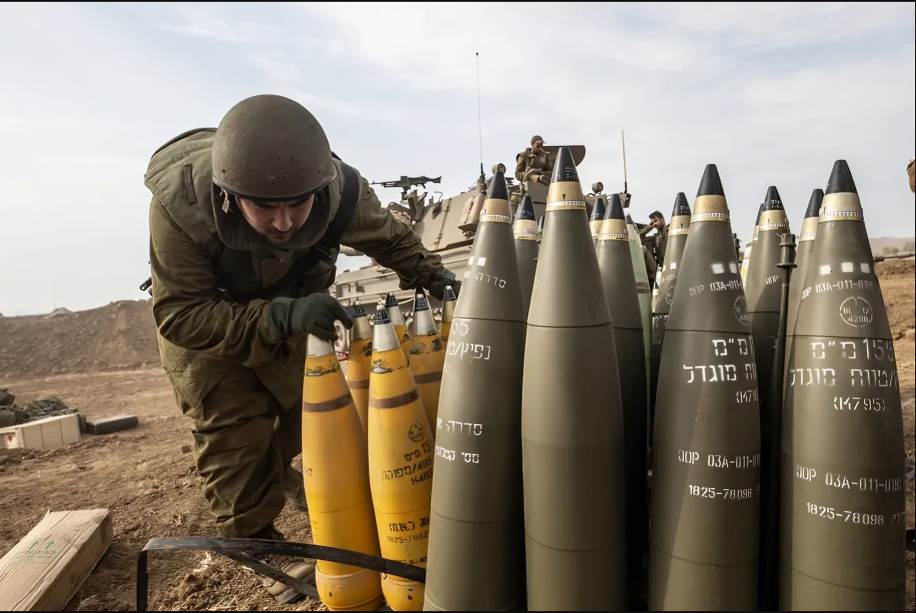
Spain granted 46 contracts to Israeli military firms since Gaza war began: Report
VIDEO | US joins global protest day to demand Israel lift 8-week siege
HTS gunmen, allied militants kill over dozen Alawites in Syria’s Homs
VIDEO | Press TV's news headlines
VIDEO | Muscat’s 3rd round of indirect talks between Iran, US
Iran’s foreign minister says ‘satisfied’ with progress in talks with US
MSF: 70% of burn victims in Gaza are children, little chance of recovery
Trump, Zelensky hold 'productive' talks ahead of Pope's funeral in Rome
Explainer: What is the significance of Shahid Rajaee Port for Iran?


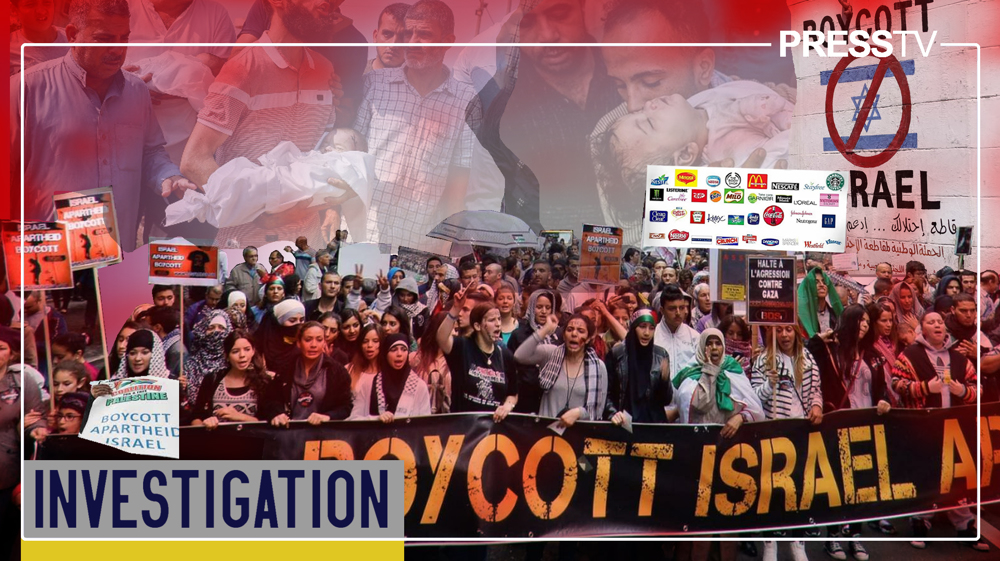



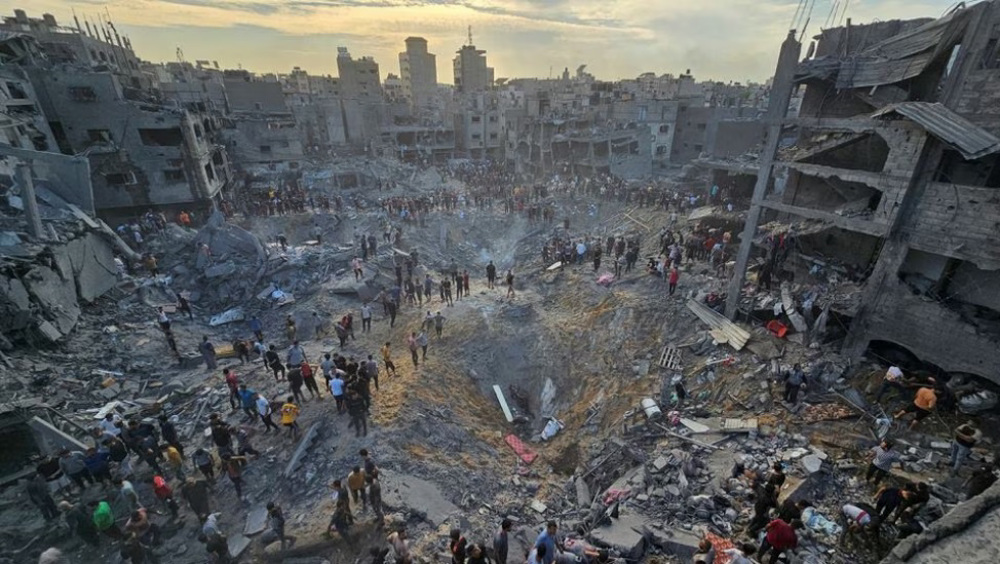
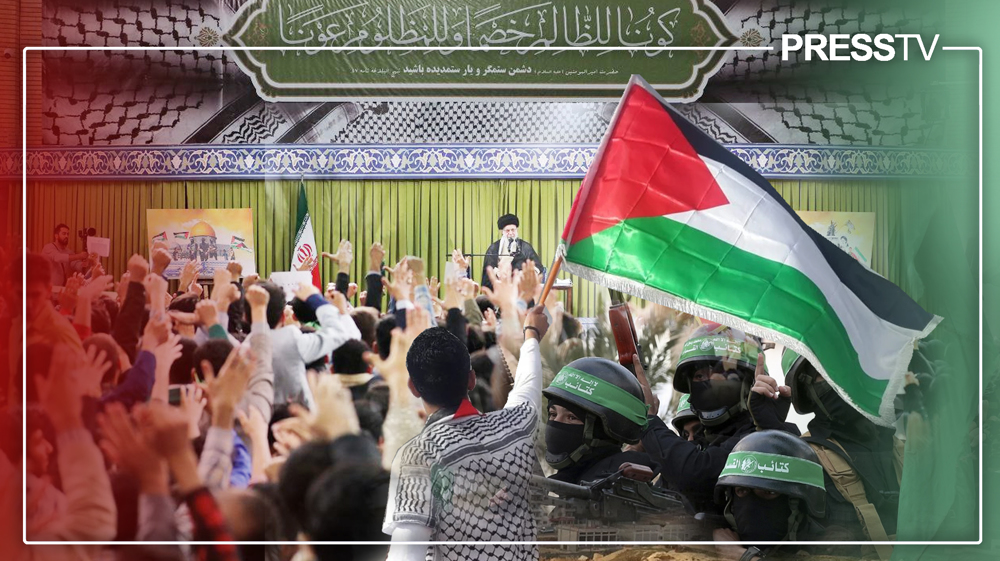

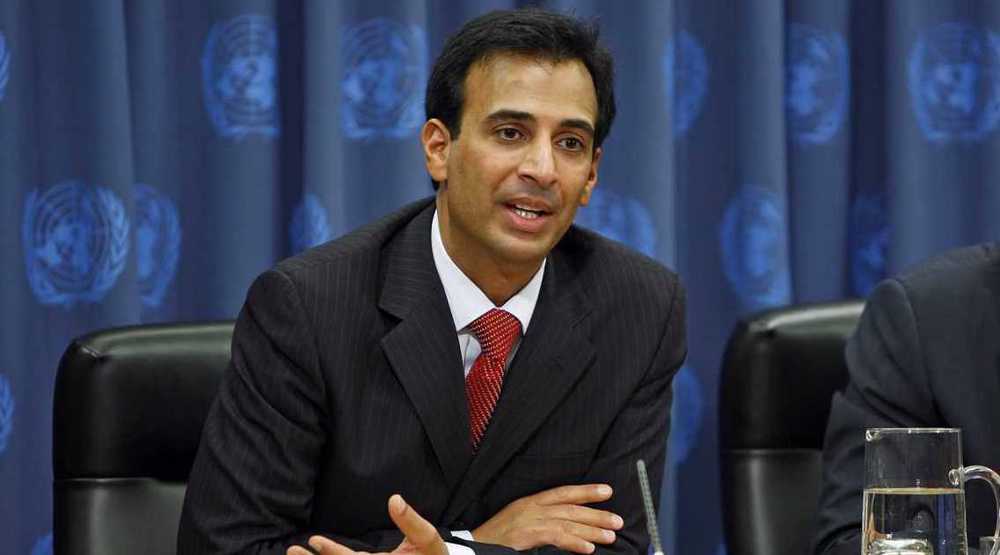
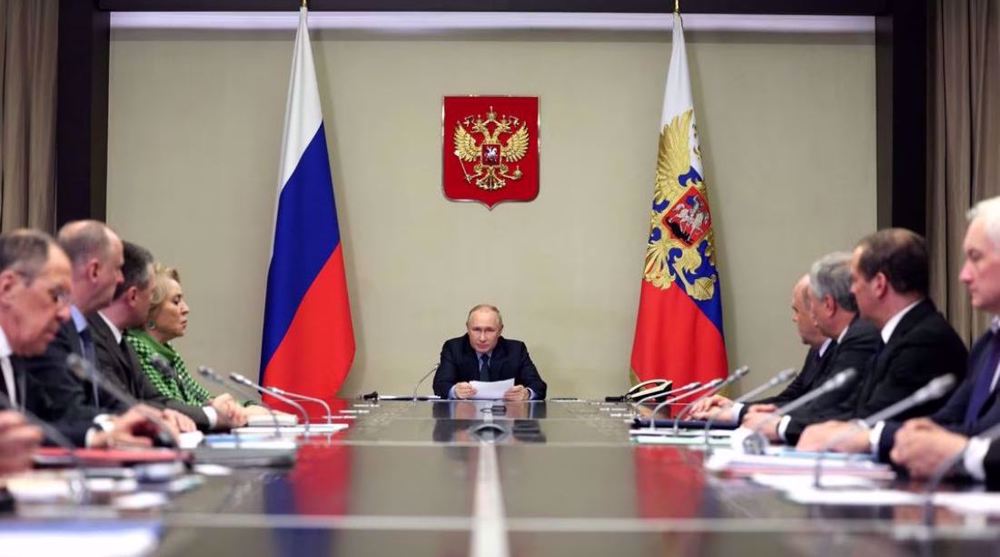

 This makes it easy to access the Press TV website
This makes it easy to access the Press TV website